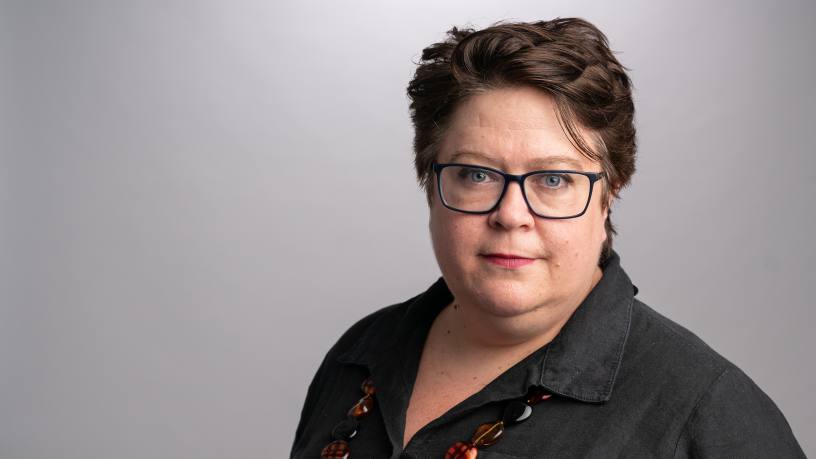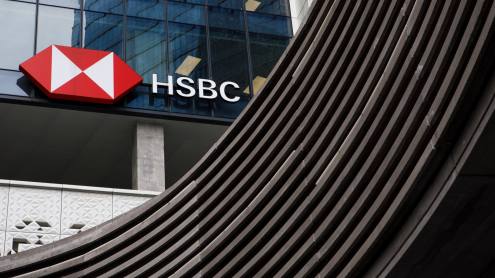Those of you familiar with me know of my decades-long campaign against empty, meaningless, mainstage keynote word salads passed off as “conventional wisdom”. We’ve all heard the quotes and phrases, repeated ad nauseum: without thinking, without scepticism, or without even a simple Google search.
They are then dutifully retweeted (re-X’ed?) or plastered all over LinkedIn like some sort of secret message from the tech gods leading us all towards the Holy Grail of innovation and capitalist riches.
We have some old favourites that you don’t hear anymore, like “The world has more mobile phones than toothbrushes”, or “There is more computing power in your pocket than was in the computers from the Apollo space mission”. Most mornings, as I brush my teeth before I leave the house, I feel proud of the social media bullying that pushed those two off the conference circuit radar.
Still, some remain. Nothing makes my pen click faster and my notebook close tighter than the answer: “Well, software is eating the world” when I ask the “how” for this product or the “why” for that company. (Does software get full? What part of the world is it “eating”’ first? Is it making snow cones in the Arctic or fruit smoothies in the Pacific Islands?)
I’m taking issue with a big one today. One quote I am sure many of you have heard before is often delivered with a smug smile to a room full of banking professionals. Yes, it is from the world’s most famous philanthropic divorcee, Bill Gates, in 1994: “Banking is necessary, but banks are not.”
It’s repeated not because no one else says it (just attend any crypto conference, it’s practically the mission statement of the movement) but because it came from Bill Gates in 1994.
Let’s break it down to reveal the extent of my cynicism.
The fact that it was said in 1994 isn’t a huge issue for me. Insights on innovation can arise from any era. Honestly, that often-used Henry Ford quote – “If I asked people what they wanted, they would have said faster horses” – is relevant and gives product design people something to think about, even in 2023. (Just in case anyone thought I hated all inspirational quotes from capitalist titans.)
But 1994 was an interesting year. It was the year I graduated from university and started my first job in journalism, on a dumb terminal, with no internet access, no email and in an office that had yet to get a fax machine. Only real, hardcore tech workers or computer nerds had a computer in their house, and I am sure Bill Gates was one of those people, in 1994.
In 1994 I waited in line at the ATM for cash to buy lunch or go out for drinks on the weekend. In 1994 I had to go into a bank branch to collect travellers’ cheques, issued by my work, when I travelled for business. Bill Gates was probably watching the first buds of e-commerce payments emerge or sat in on meetings about how Microsoft might offer an online account management product.
During that time, he predicted a future where supposedly banks were not necessary. Was he seeing a world of digital banking services, or did he lack the imagination to consider that a bank could exist outside a physical branch? If I had asked the people what they wanted from their bank in 1994, they would have said “more bank teller windows opened”.
Now, on the second part — this quote was said by Bill Gates. Bill Gates is a billionaire, a capitalist icon, and, I am not doubting, a smart guy. But the first two categories elevate men like Mr Gates to the pantheon of gods, infallible in their wisdom and retweeted by tech bros and bro-ettes worldwide.
That is where I take issue. Bill Gates is a widely successful and wealthy person. He has used his wealth to try to create some good in the world through the Bill & Melinda Gates Foundation. However, Microsoft’s business practices have often been questioned by regulators and governments around the world for decades and even he was unable to maintain his marriage to his wife and mother to his children, Melinda. All of this makes him human, which makes him flawed and fallible, just like the rest of us.
“Banking is necessary, but banks are not” could just as easily come from your cousin’s boyfriend who tried to get you to invest in his crypto scheme
“Banking is necessary, but banks are not” could just as easily come from your cousin’s boyfriend who tried to get you to invest in his crypto scheme last Christmas as it could from Bill Gates. Question everything that doesn’t ring true and don’t judge the validity of a statement solely on the speaker’s ability to buy a mint condition Ferrari.
And finally, my real issue with the idea that banks are not necessary: banks are a legal entity. They are secure regulated organisations that take deposits and lend money. Banks existed in 2000 BCE when loans were offered to farmers in Mesopotamia. Modern day banking (and the word bank) arose in Renaissance Italy, founded by rich merchant families like the Medicis to manage their investments in “bancos”.
Banks finance infrastructure like roads and railways all over the world, they move money from factories to ports and distributors and hold onto the savings accounts of little girls with lemonade stands.
Banks and their banking services touch almost every part of modern life. Access to their services – secure, protected and regulated – is freedom and power, evidenced by how often that access is denied to many sections of global society (hint: it is usually, the poor, the stateless and, to a large extent, women).
Think of it in less of a “world economic order” context. Pretend Bill Gates said (in 1994) that “Eating food cooked by strangers is necessary, but restaurants are not.” And then you started to attend several banking conferences where libertarian types made speeches about how difficult it was to innovate in the “getting food cooked by strangers” sector because legacy restaurants had to deal with all these regulations like “food hygiene”, “working toilets” and “fair wages for staff”.
Still think that statement is “insightful” and proof positive that the evil restaurant industrial complex will meet its desired end? What’s a little dysentery among friends who are just trying to innovate in an ageing industry?
Twenty-nine years after Bill Gates proclaimed that banks were not necessary, banks and their banking services are still here. Open banking, embedded finance and digital technologies have welcomed partners and new entrants into the banking sector to offer all these “necessary” services. Now that banks aren’t trapped inside bricks-and-mortar buildings, the world of banking services has expanded, and collaborated, and co-operated.
Honestly, I tie this quote to the age in which it was said: the early Nineties. I really think that what Bill Gates thought wasn’t necessary was the building, with a vault full of cash and windows staffed with tellers, called “a bank”. (I have no way of knowing for sure. Mr Gates, call me.)
I’ll leave you with this. Bill Gates is known for another quote, but it’s up for debate whether he actually said it at all. Supposedly, in 1981, the tech founder commented that 640k of computer memory was “enough for anyone”. When asked by a student about it, he responded: “I've said some stupid things and some wrong things, but not that…”
When it comes to money, your access to it, and the ability to fund, lend and move with it in a secure and regulated way, banks are very much necessary. To suggest otherwise may be one of those “stupid” and “wrong” things.
Liz Lumley is deputy editor of The Banker. Follow her on X (formerly known as Twitter) @LizLum
Register to sign up to Digital journeys, our new weekly newsletter, as well as the latest analysis and features from The Banker.








